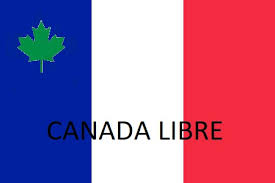(Based on two recent postings on the Linked In platform.)
A new editor has taken the helm of Pearls and Irritations and it is pleasant to see that she is as open-minded as the preceding one. There is an interesting number in the text below: only 56 % of Australians voted in 2019, a ratio similar to what happen in Canada and elsewhere. It show the challenges facing democracy these days: disaffection, cynicism, and gradual loss of interest toward politics in general.
Many factors are responsibles: a greater social distance between those who governs and those who are governed is one, as exemplified by the corruption that may slowly rot political parties from the inside out, especially those that exist for a long time. In the USSR, the long-ruling one-party state engendered a nomenklatura that make one think about the one century and a half-old Liberal Party of Canada and its growing luxocratic manners and tendancies. Dishonesty also play a hand, like when that same political formation defrauded half the French-speaking population of the province of Québec because of its fear of betraying the British Empire.
In a general manner, the difficult budgetary situation of most Western countries constitute a basic threat to the democratic process. It may bring the American Republican Party to push for populist reforms to please a particular President that seems in need of a demagogic platform in order to better create a personality cult around him. What can save modern democracy? Two possible ways may be explored:
A) a kind of direct democracy system, from the bottom up, with frequent elections in small juridictions, Switzerland-style, with its many canton by canton consultations, or else, from to to botton, it could be
B) a system of gradual lenghtening of presidential (or executive) terms, in order to eliminate the need to organize circus-like, very costly and too-showy elections that are too close to one another and prevent long-term planning, since there is always a risk that each party's preferred set of policies get cancelled out every four years, creating ever deepening chaos.The second possibility may eventually result in the creation of de facto monarchies, like what has happened in North Korea, with its three successive heads of state from the same political formation, father to son, son to grand son, or what is starting to happen in Cambodia, where a father and son monarchy system seems to be taking shape.
It may at first seems strange that a monarchy system can be called democratic. When England of France where ruled by monarchs, each king was succeeded by a family member, usually a son. The length of kingly rule was often determined by the health of the monarch, but not always: a bad king could be eliminated by internal factors (through palace coups, for instance) or by external factors (war, sickness, etc.). If the succession of kings (and queens) was often erratic, in each case, both in England or in France, the royal administration assured stability and allowed long-term planning, despite the vagaries of who is in power at this time or who is in power at that time.
What is the difference between A) an elected president in power for five years, or seven as in France at one point, followed by another with usually very different views, after that short period of time, and then another one, etc., and B) a non-elected monarch that is in power for two years, get pushed out by political rivalry, is followed by a more competent one coming from another branch of the family, who is able to rule for twenty years, until he dies by natural causes, to be followed by a simple regent, because the heir is to young, till the time said heir got crowned seven years later, in order to reign five years only, before he died in an unfortunate hunting accident?
The difference is not that great, since there is alternance in both cases, not between political parties but between the kings themselves. There is also stability in both cases, provided by the civilian administration. There is also uncertainity on both sides, with a steep (or easy) learning curve in both cases, because a new president or a new king has to learn the ropes just the same as any other, with the same amount of improvisation, inexperience, absence of talent or inate talent, depending on the individual concerned.
https://johnmenadue.com/post/2025/04/message-from-the-editor-4/




Commentaires
Enregistrer un commentaire
Bonjour, tous les commentaires sont acceptés, dans la mesure où ils sont d'ordre professionnel. Insulteurs s'abstenir...